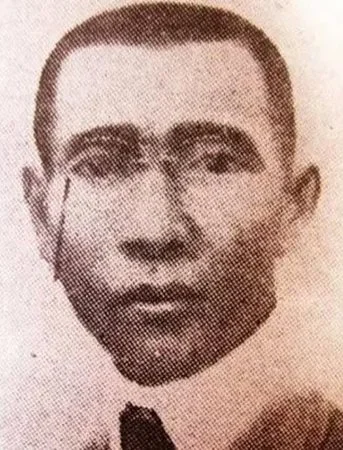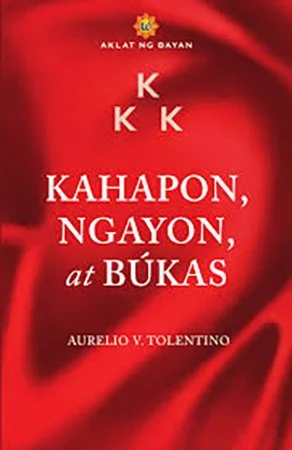A Kapampangan Playwright Who Enraged US Colonial Officials
/Aurelio Tolentino (Source: Kahimyang Project)
What they overlooked was the name of the playwright—Aurelio Tolentino of Guagua, Pampanga, who was Andres Bonifacio’s co-founder of the Katipunan and Emilio Aguinaldo’s co-signatory of the Declaration of Independence.
Aurelio Tolentino’s Kahapon Ngayon, at Bukas
As the play progressed, the American officers began squirming in their front-row seats. The boisterous audience kept hissing every time actors playing Americans appeared on stage. They cheered lustily when a character recited a litany of revolutionary martyrs, and rose to their feet when an actress playing Inang Bayan tore the US flag and gave a passionate speech against the United States. The crowd also repeatedly called Tolentino’s name out loud. And Tolentino, who played the role of Taga-Ilog in the play, often stepped out of character to take a bow of acknowledgment.
The Americans by now had realized they'd fallen into a trap set by the Kapampangan playwright and his audacious band of actors.
And so, when actors used a “mechanical device” to behead an eagle representing the United States, and children walked on stage to kneel before an actor playing a US military general and then handed him a book, “which opened as if by magic” to produce a revolutionary flag, all hell broke loose.
Illustration by Dos Garcia
One version of the incident said the American secret police leaped on stage with revolvers drawn and began to harass the actors and the audience. Another version had an actor (not Tolentino) trampling on the Stars and Stripes. An American officer seized and pushed him, sending the actor crashing into the scenery that represented “the happy life Filipinos would have had without the oppressor,” according to a newspaper account. Another American threw the Statue of Liberty prop off stage and when it landed on the floor it broke apart, revealing “a fat Filipino actress inside screeching like a wild cat.” As it turned out, she had been sweating it out inside the papier-mache statue waiting for her cue to speak as Lady Liberty favoring Philippine independence. Like most other parts of the play, her speech was not in the script that Tolentino had submitted earlier to the American censors.
Tolentino was arrested on the spot and sent to jail. During the trial, the American judge also implicated Tolentino’s brother, Jacinto, who served as the stage prompter and, therefore, the one who supplied the libelous lines that the actors had merely repeated.
Aurelio Tolentino appealed his case to the US Supreme Court where he argued that his play was “a purely literary and artistic production where the legendary history of these islands and their destiny, as imagined by the playwright, were presented merely for the entertainment and education of the public.”
As the play progressed, the American officers began squirming in their front-row seats.
The US Supreme Court, however, rejected Tolentino’s argument, saying that “the manifest, unmistakable tendency of the play, in view of the time, place and manner of its presentation, was to inculcate a spirit of hatred and enmity against the American people and the Government of the United States, and that the principal objective of its author was to incite the people of the Philippine Islands to open an armed resistance to the constituted authorities, and to induce them to conspire together for the secret organization of armed forces, to be used when the opportunity presented itself, for the purpose of overthrowing the present Government and setting up another in its stead.”
Aurelio Tolentino was sentenced to life imprisonment and fined US$2,000.00 plus costs of litigation (totaling US$7,000.00). In 1912, however, Gov. Gen. William Cameron Forbes granted him pardon. Tolentino then founded the Katimawan (Samahang Hanapbuhay ng Mahihirap), the first workers’ cooperative in the Philippines, and continued writing, both in Kapampangan and Tagalog. He died in 1915 and his remains are now enshrined in a monument in Guagua, Pampanga.
October 15 is Aurelio Tolentino’s 156th birth anniversary.
Reference: The Manila Cable News.
Photos: NHCP, Amoj in Wanderland
Illustration: Dos Garcia
Reposted with permission from the author’s Facebook page. Originally titled “How a Kapampangan Tricked US Officials into Watching an Anti-American Stage Play.”
Robby Tantingco is the Director of the Center for Kapampangan Studies and Vice President for External Affairs of Holy Angel University. He is the author of "Destiny and Destination" and "Pinatubo: The Volcano in our Backyard" which won a National Book Award.
More articles by Robby Tantingco







